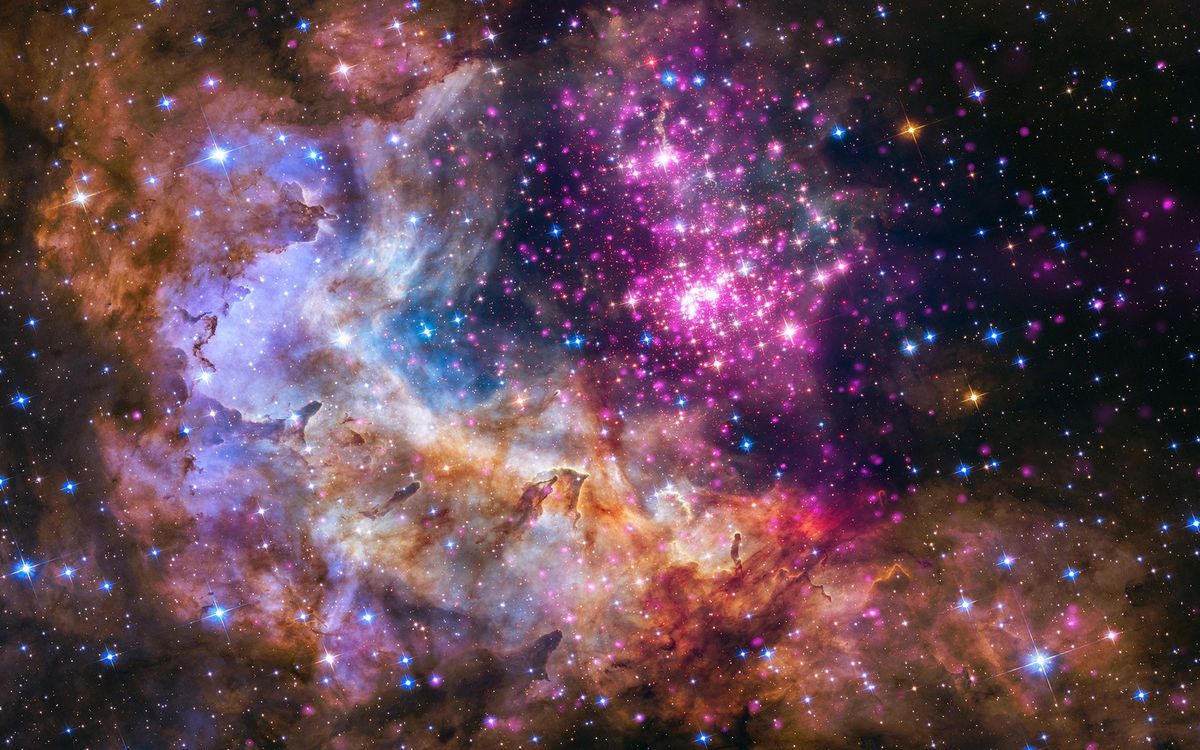Our Multi Verse

Oh me! Oh life!
Walt Whitman
Oh me! Oh life!
Of the questions of these recurring,
Of the endless trains of the faithless, of cities fill’d with the foolish,
Of myself forever reproaching myself, (for who more foolish than I, and who more faithless?)
Of eyes that vainly crave the light, of the objects mean, of the struggle ever renew’d,
Of the poor results of all, of the plodding and sordid crowds I see around me,
Of the empty and useless years of the rest, with the rest me intertwined,
The question, O me! so sad, recurring—What good amid these, O me, O life?
Answer.
That you are here—that life exists and identity,
That the powerful play goes on, and you may contribute a verse.
A few weeks ago there was a series of weird, collaborative intersections convening in my life: I heard a guest, Bart Ehrman, on the Thinking Atheist podcast-- a Christian agnostic who teaches theology at UNC Chapel Hill and wrote a new book The Triumph of Christianity (https://youtu.be/7XYAX_PTd8); later, a Universalist Unitarian pastor spoke about her spiritual humanism at the Atheist, Skeptic, and Humanist (ASH) meeting in Clintonville; then, the On Being podcast hosted a secular Buddhist. Now, most Buddhists are secular, so hearing Stephen Batchelor identify as such was of little consequence. (https://onbeing.org/programs/stephen-batchelor-wondrous-doubt-mar2018/) Speaking at ASH, Reverend Doctor Marian Stewart being a spiritual humanist was more confusing to me, as Humanists eschew the supernatural--a point I pressed her on. She agreed and furthered her point by stating that for her, and likely others, there is an undoubted human connection, quite unrelated to the supernatural, yet very much a part of our existence. (She queried, “Had we not figured this out yet?”) I concurred aloud and spoke of this as “grace”--though, here, most unreligious and completely human; a valid, almost palpable, love we can experience with other humans: the joy in the sunrise, the marveling at a snowflake, the awe of a redwood…are all natural. Common. And very not god-centered.
Pluralism
I thought, then, days later of America's rising LGBTQ awareness and a years-old conversation with my sister where she noted that many of those who identify as such were likely not binary, but more spectrum-like and fluid. Then I recalled Dr. Stewart's astute reference to, not a spectrum of spiritual beliefs, but a galaxy. A galaxy. Where, in three dimensions, a person could perceive their beliefs about life from infinite points of information. And I had to let that simmer awhile and test it out--reflect on its range. (Christian agnostic--really?) Stewart and Batchelor used similar, qualifying phrases akin to, “‘this term’ defines my current thoughts about the relationship of [the topic at hand], myself, and my understanding of the world today. As I gain more information, this ideology (and therefore the term) may shift to accommodate that growth.”
I was struck by their admittance of not knowing. True agnosticism. Their authentic allowance for growth. They were so articulate about where they were, WHO they were, yet recognized that that was flexible and FORGIVING. If only more of us could be so self-aware. More patient. And with others, too.
Then my thoughts wandered to the millennials…possibly even Gen Z kids (like my son) and started to think about how life is SO not binary for them. They resent my generations’ binary politics. They are proficient at using multiple screens simultaneously. Their entertainment comes from multiple, diverse sources—they don’t all listen to the same radio station, or watch the same 3 channels on TV, or get information from a single source…they are not pasta-on-Sunday eaters—they know and love sushi, Thai, smoothies, salads, and organic coffees… They even know the most egregious crimes against their nation, and even and especially schoolchildren, may not come in one fell swoop, in one centralized location, but in small, unconnected, cells scattered yet united in purpose… All of their divergent tendencies and prowess are results of, and reactions to, the way things used to be. Many don’t like to be in a box—pigeon-holed, one-size-fits-all—not at all. They lean into the grey—the fluidity. The growing. Their likes, dislikes are more transitional than those of their parents’. Their understanding of gender, politics…and religion. There is less room for a battle between minority or majority—and more room for just existence. They use greater caution about placing blame AND OR responsibility… especially for our mistakes…
I think this adaptable, appreciative thinking is a strength. Something that can save us.
And it kind of fits how I think about religion. That no one belief system is more correct than another. That we really DO need to coexist. (Yes, I have the bumper sticker.) This idea of pluralism is the first step to realizing that the one thing, the sole, unifying thing, holding us together is our humanity. And although I can appreciate and value that others have a worldview that might be based in the supernatural, I don’t have to agree with them to love them. Each of us has to do what we can to make sense of our world. Of course I wish that everyone could place all of their faith in each other on the planet, instead of in the myriad religions, with all their exclusionary sects, but some can’t let this go. And I cannot wish to impose that belief on them any more than they should not wish to impose theirs on me. (Check out this website: http://pluralism.org/)
A recent Facebook post from a person close to me lamented that prisons were more bible-friendly than schools and that if kids were allowed to read it in school, maybe fewer would be imprisoned. Well, there is a lot to unpack here, but first, kids ARE allowed to read the bible in school…or the Quran, the Vedas, Torah, etc… and that is my sticking point. With the beautiful diversity of our population, it is discriminatory (and rude?) to suggest that one’s holy book is better than another’s. Or further, that any holy book is necessary, should one’s life make better sense for them not to believe at all.
America is not a Christian nation, but a nation with a Christian majority. People like me, non-believers, are often ignored, or reduced in significance (discriminated against) when it comes to saying the Pledge of Allegiance, using our money, taking an oath in court (where the right hand on the bible is mere habit, and not legally required), or being reminded that CHRIST is in Christmas. I just don’t believe in god. It doesn’t make me a horrible person. And more so—I would appreciate not being judged because of that.
I am starting to appreciate this galaxy-view. Take ours: helio-centric. We have our core energy source, the sun. We revolve around it. Like in life—we have a set of core values. We hold them close. How they manifest may vary—and our terms of expression of those values “may shift to accommodate growth”, but we never let go of them.
All my life I was raised to believe that human beings were valuable just as they are. The recognition of this multiverse is important. We all have our texts to uphold: that which is our verse.
Let’s be appreciative and know that there is room for everyone.##
